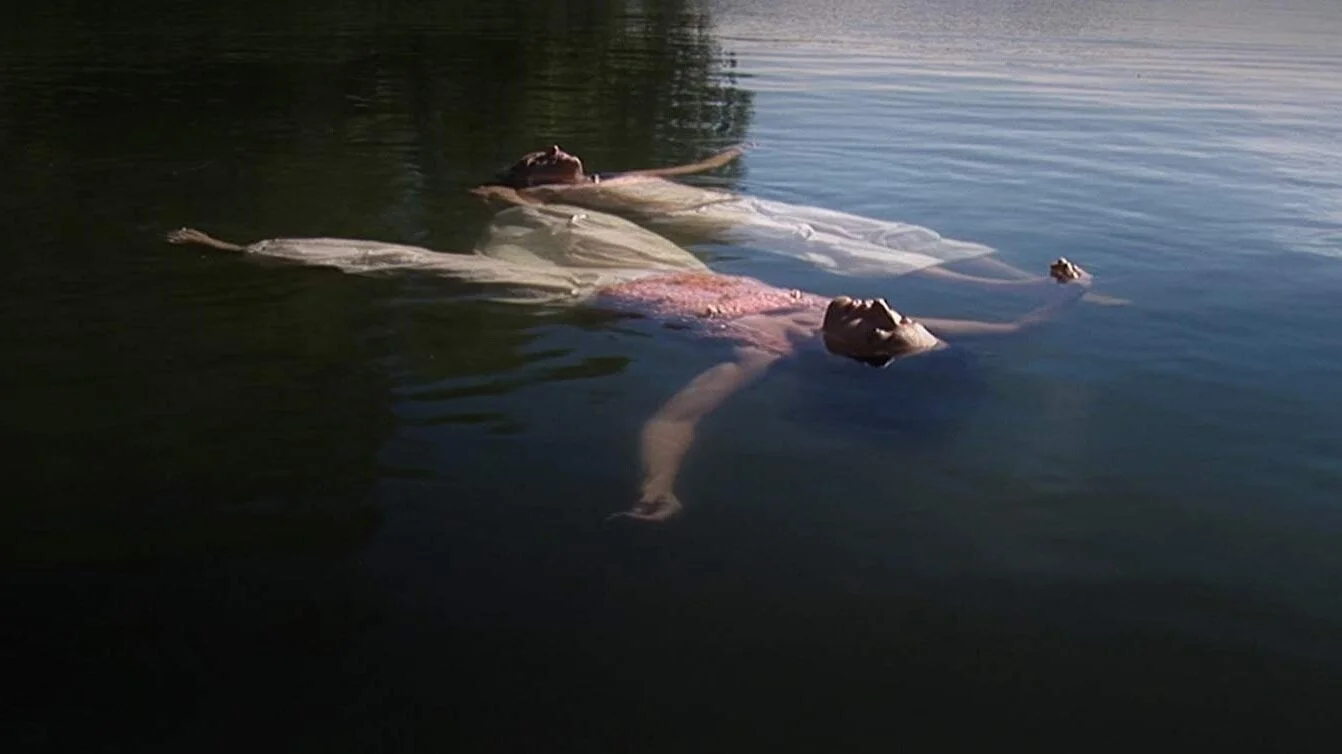Sea Without Shore
Rare individuality in a work to intrigue anyone seriously interested in dance on film.
Most unusually the arrival of this film on our screens now marks the fifth anniversary of its first limited release. This is very welcome because, while it is possible to have very mixed feelings about the piece, it is undoubtedly a work of art and a genuinely original one at that. It was made by André Semenza and Fernanda Lippi and, although it is thus linked to the work of the Zikzira Physical Theatre Group, it is miles away from anything that could be attempted on a stage. Utilising body language and movement to express emotion, Sea Without Shore adopts a special form of dance conceived in specifically cinematic terms. Unlike anything else I have seen, it merges three separate strands into a unity. The dance element, which is played out to highly original music by the Hafler Trio tellingly interspersed on occasion with extracts from nocturnes by Chopin, is organically linked to the film's setting (it was filmed in Sweden where wintry exteriors become a central feature and thus provide the second strand). The third contributing factor comes in the form of poems which, in a film that virtually eschews dialogue, are heard in voice over (in point of fact although the poems were originally English they have been translated and are delivered here in Swedish with subtitles). In view of the strong sense of place, this feels right and the poems are both a commentary on and an expression of the emotion that is at the heart of this astonishing work.
The title chosen for the film takes on a poetic resonance as soon as one knows that this is a work about grief. The sense of desolation is there from the start as a woman (Lívia Rangel) confronts the loss of her lover (Fernanda Lippi) who is nevertheless seen both in scenes of past memories and in the dream-like hallucinatory world brought about by her absences which we may well interpret as being due to her death. The poems used are by Swinburne and by two women, Renée Vivien (1877 - 1909) and Katherine Phillips (1632 - 1664), the former a known lesbian and the latter a poet whose sexuality remains a subject for speculation. In any case the lesbian element in the film is inescapable (as one poem puts it "I am not Thine but Thee") and, since the purity of feeling brings a sense of beauty to a tragic situation, lesbian viewers may be specially admiring of the film. Nevertheless, Sea Without Shore will speak to anyone who can respond to a meditation on lost love and it will also appeal to cineastes for its colour photography by the late Marcus Waterloo and for the style of its direction which makes striking use of short, distinct scenes, be they indoors or out, which fade to black.
My admiration for Sea Without Shore is in many ways great, but I have to say too that the decision to portray an endless journey into what can be regarded as a nightmare world is ill-suited to its existence as a feature-length work since it leads to far too much repetition rather than to any form of resolution. For me this weighed the piece down but, if you feel drawn to this daringly experimental work, you should definitely see it and draw your own conclusions. At times it touches on greatness and, even if I much prefer the first third to what follows, there is also no doubt about the haunting aptness of the final shot of all.
MANSEL STIMPSON
Cast: Lívia Rangel, Fernanda Lippi, Anna Mesquita af Sillén, Ankie Hermansson.
Dir André Semenza and Fernanda Lippi, Pro André Semenza and Fernanda Lippi, Screenplay André Semenza, from a story by André Semenza, Fernanda Lippi and Marcus Waterloo, Ph Marcus Waterloo, Pro Des Marcus Waterloo, Fernanda Lippi and André Semenza, Ed André Semenza, Music The Hafler Trio, Costumes Fernanda Lippi and Marcus Waterloo, Choreography Fernanda Lippi.
Zikzira Physical Theatre/Maverick Motion-Jonny Tull.
91 mins. UK/Brazil. 2013. Rel: 6 March 2020. Cert. PG.


